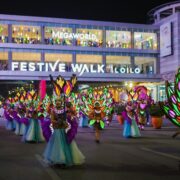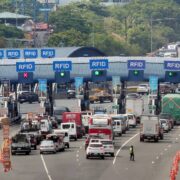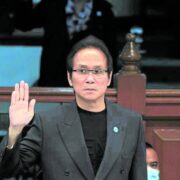Our blue economy agenda

Our country being the second largest archipelagic nation in the world with its 7,641 islands (next to Indonesia’s 17,508), makes it incumbent upon us to follow the latter’s lead and craft our own Blue Economy Roadmap, which they already have. The FVR (Fidel V. Ramos) Legacy Initiative and the Philippine Rural Reconstruction Movement (PRRM) took a first step by convening some 166 multisectoral representatives in a two-day roundtable discussion on the Blue Economy last March. Last week, PRRM president Edicio dela Torre and I (to represent the former) formally presented the roundtable’s final report to Executive Secretary Lucas Bersamin, who is also the chair of the National Maritime Council.
The report is organized under the four themes of the roundtable discussion: (1) Fisheries, Aquaculture and Other Marine-Based Products, (2) Blue Energy, (3) Maritime Transport and Services, and (4) Coastal and Marine Tourism. Summarized below are some key actions recommended by the forum participants.
On the first theme, there was a strong call to review and reconsider the Supreme Court’s August 2024 ruling that opened municipal waters to commercial fishing vessels, owing to widespread concern over its adverse impacts on marine biodiversity and small fishers’ livelihoods. There is a need for stronger research and development support for the fishery industry, and for an effective production insurance system for fishers similar to that currently provided for farmers. The forum also pushed for the establishment of a Department of Fisheries and Water-Based Industries, noting how Indonesia has long had a separate Ministry of Maritime Affairs and Fisheries in view of its archipelagic resource base. This would achieve a unified and coherent governance of our blue economy, which many currently see to be disjoint, fragmented and under-resourced.
On blue energy, there is a need for a policy environment that enables decentralized energy resources (DER), which would help encourage investments in new ocean- and river-based power generation technologies long hampered by a bias toward large-scale systems. Distributed energy systems via microgrids powered by DERs are seen to assume a wider role in future energy landscapes, especially given their advantages over traditional centralized power grids in terms of flexibility, efficiency, and sustainability. Distributed generation is also more cost-effective for meeting localized energy needs in remote or isolated areas like islands, by reducing transmission and distribution costs. But blue energy technologies entail high investment costs that include prior research and development, and risks normally associated with promising but previously untried technologies. This implies the need for the government, through the Department of Energy, to take a direct role in research and development, and even undertake missionary investments when warranted to induce private investments into risky new but promising energy directions.
Maritime transport and services would get a boost from the passage of the shipbuilding and ship repair development bill pending in Congress. Industry players call for clearly delineating the mandates and functions of the maritime agencies, particularly the Maritime Industry Authority and the Philippine Ports Authority (PPA). Both have mandates combining regulatory, developmental, promotional, and even operational roles, which leads to their dysfunctional behavior, often skewed toward regulation at the expense of development. Privatization of the port operations of PPA must be sped up to avoid this conflict. The forum also recommended the implementation of national maritime spatial planning to accompany more familiar land use planning already being done to some extent. There must also be a comprehensive study to identify viable river and lake passenger and cargo transport systems around the country, to harness and optimize inland water transport opportunities as part of a seamless multimodal transport system.
Coastal and marine tourism has always been a dominant segment of the country’s tourism sector. Here, challenges lie in ensuring sustainability and environmental integrity. Adoption of a blue tourism code to address these challenges would be an important step. Local governments must develop local tourism master plans, including those for coastal and water-based tourism resources within their jurisdictions. Land- and water-use policies at the national level down to the local levels must integrate concerns transcending the green and blue economies, seeking win-win outcomes whenever possible.
The next step is to entrust the blue economy road-mapping exercise to the Department of Economy, Planning and Development as the premier planning body of the country. Having led that institution under its former name, I have every confidence that it will rise to the challenge.


















Japan-PH: 70 years of relations woven in trust